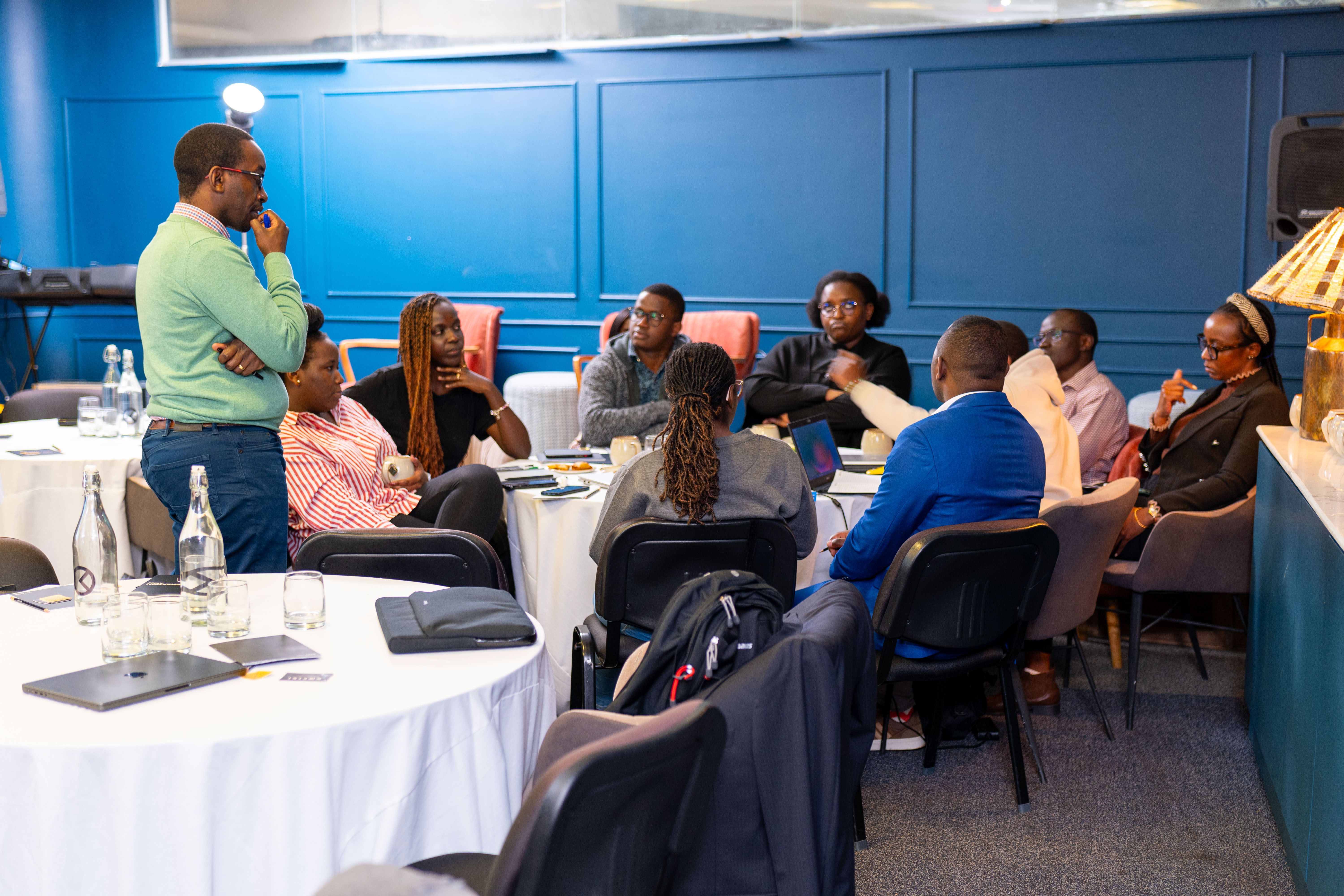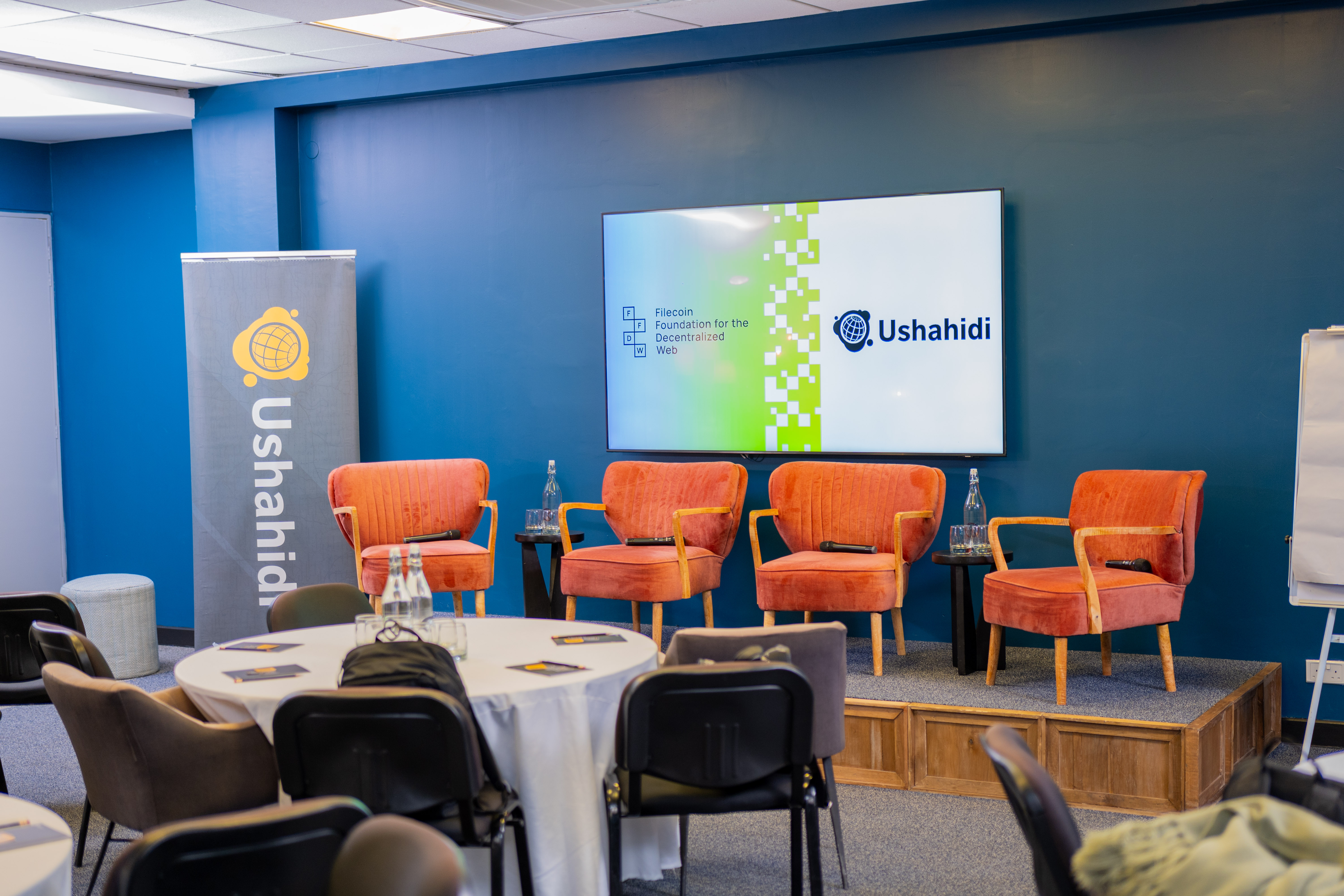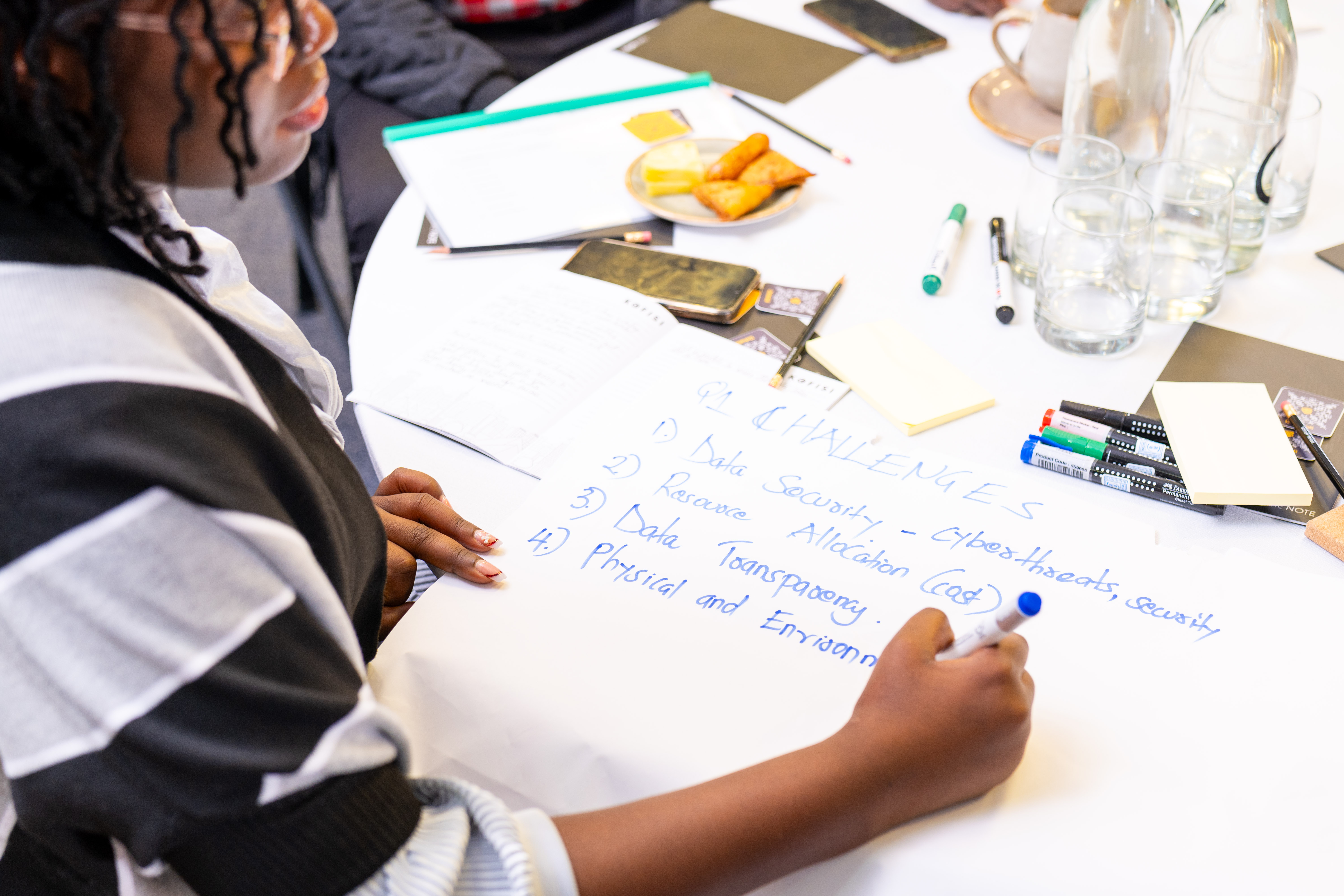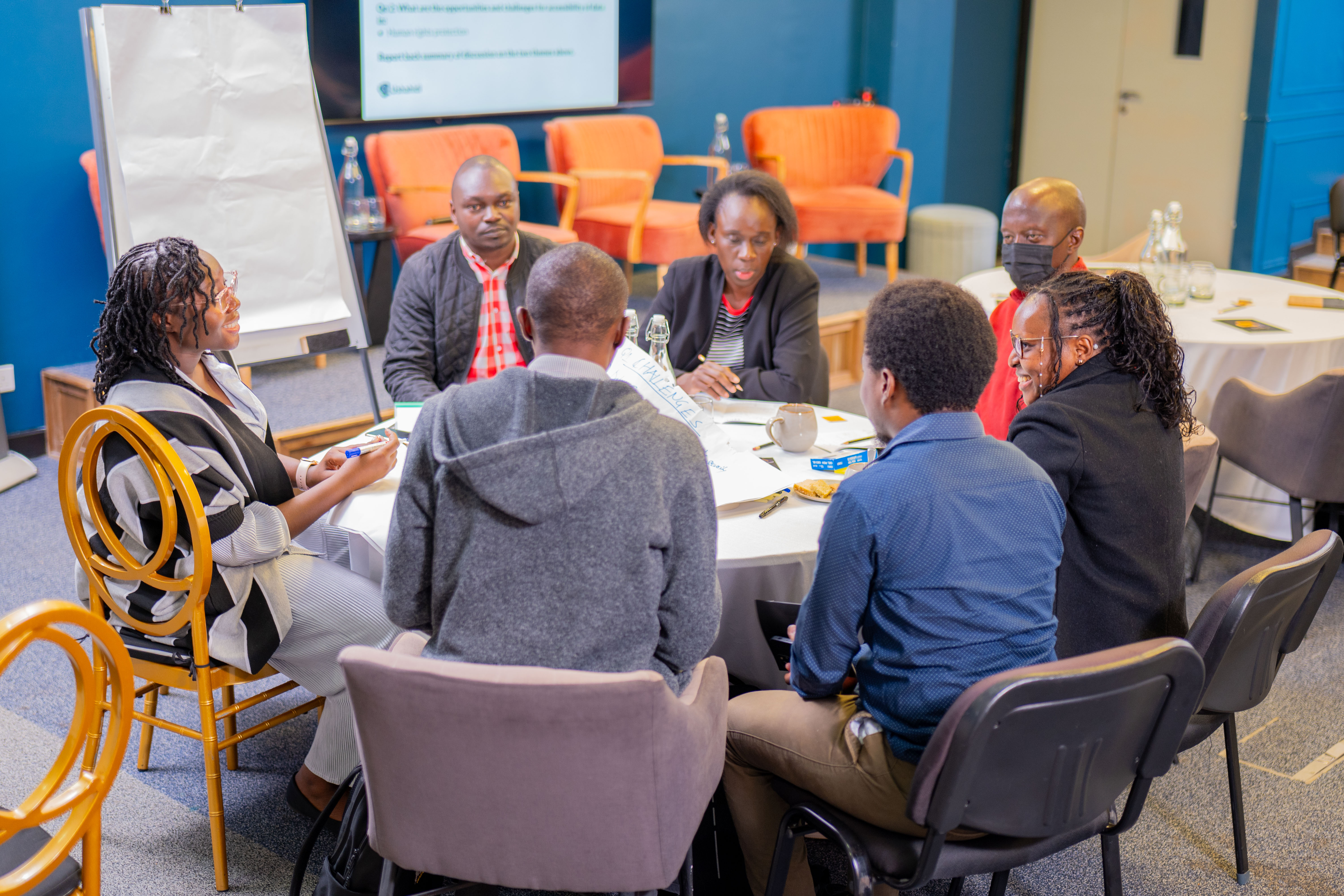Co-Creation for Data Accessibility and Preservation in Human Rights Protection and Elections

Sep 26, 2024

At Ushahidi, collaboration and innovation are at the heart of what we do. Our latest co-creation activity brought together diverse stakeholders to address two crucial aspects of civic engagement: long-term data preservation in election contexts and accessibility of data in human rights protection. By combining insights from multiple sectors, we aim to foster resilient, accessible, and trustworthy data ecosystems that empower individuals and strengthen democratic processes. Building on our exploratory work to build a data archive for our election data, with support from Filecoin Foundation for the Decentralized Web (FFDW), this exercise underscores the transformative power of collective problem-solving.
Setting the stage

Inspired by Ushahidi's Election Data Resilience Initiative, the co-creation activity brought together human rights advocates, technologists, and civil society leaders to brainstorm around two central questions:
- What are the opportunities and challenges for long-term preservation of data in election contexts?
- What are the opportunities and challenges for accessibility of data in human rights protection?
These two areas, though distinct, intersect in meaningful ways. Both require robust data management systems that prioritize safety, transparency, and inclusivity while safeguarding the fundamental rights of individuals.
Exploring the Challenges and Opportunities of Data Preservation in Elections
As highlighted in the Election Data Resilience Initiative, election data is a cornerstone of democratic accountability. Participants noted that the ability to track trends and predict electoral behavior over time offers significant opportunities. It allows for better-informed decision-making, identification of discrepancies, and overall improvement in electoral processes.

However, long-term data preservation also faces substantial hurdles. Chief among them are data security concerns, high costs of maintenance, and the need for infrastructure that can withstand physical and environmental risks. Data manipulation and misuse by bad actors were also identified as key risks, making transparency in the handling of election data even more critical.

Despite these challenges, the participants emphasized the importance of leveraging emerging technologies—such as blockchain and decentralized web storage—to create resilient, secure, and scalable solutions. The transformative power of these technologies aligns with Ushahidi’s commitment to open-source solutions that can be adapted to local contexts and needs.
Tackling Accessibility in Human Rights Protection
The second discussion was focused on the accessibility of data in human rights protection. Drawing from the ethos of our work with decentralized storage, participants highlighted that data, when made accessible, becomes a powerful tool for accountability and community empowerment. By enabling access to verifiable data, disenfranchised communities can advocate for their rights and hold violators accountable.

The participants explored the unique opportunities provided by open access to diverse data, including empowering communities to participate in human rights efforts, supporting evidence-based policymaking, and enhancing the monitoring of rights violations. Third-party tools and multimedia platforms were identified as key enablers in making data more digestible and engaging for diverse audiences.

Nevertheless, significant challenges remain. Data privacy and protection emerged as critical concerns, especially in regions where individuals may face retaliation for exposing human rights abuses. Political, legal, and socio-economic barriers also complicate access to data, particularly in regions with poor digital infrastructure or restrictive governments.
Key Learnings and Next Steps
The co-creation activity not only identified the challenges we must overcome but also provided a clear roadmap for action. Here are the key takeaways:
Empowering Communities through Accessible Data: Making data open and accessible ensures that it can be used by the people who need it most. Whether it’s through multimedia formats or third-party tools, accessible data empowers communities to actively participate in both elections and human rights advocacy.
Safeguarding Privacy and Security: A balance must be struck between making data available and protecting the privacy of individuals, especially in sensitive human rights contexts. Strong anonymization and encryption measures are essential to maintaining trust and protecting vulnerable populations.
Harnessing Open-Source Technologies: Participants echoed the findings from our work on decentralized web storage—open-source technologies offer a flexible, adaptable, and cost-effective means to ensure that data is preserved and accessible over time. These solutions allow for more transparent processes and help democratize data.
Collaborative Action for Lasting Impact: Co-creation activities like this one are vital for fostering innovation in both the human rights and elections sectors. Cross-sectoral collaboration ensures that solutions are well-rounded, inclusive, and informed by diverse perspectives.

Looking Ahead: A Collective Responsibility
As we move forward, Ushahidi remains committed to advancing these discussions and implementing the solutions proposed. The intersection of data accessibility and long-term preservation is a critical area that requires continuous innovation and collaboration. Through initiatives like the Election Data Archive, we will continue to support a more transparent, accountable, and just world.
Data is a tool for empowerment, but only when we work together to ensure its resilience and accessibility. With the support of our global community, we can continue to create the systems and solutions that uphold democracy and protect human rights. Together, we can shape a future where data serves the public good, free from misuse and manipulation.